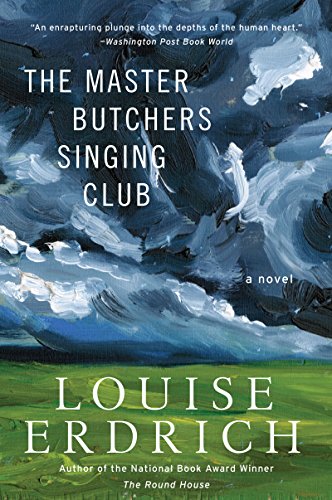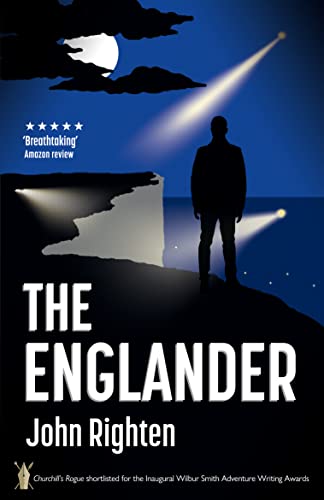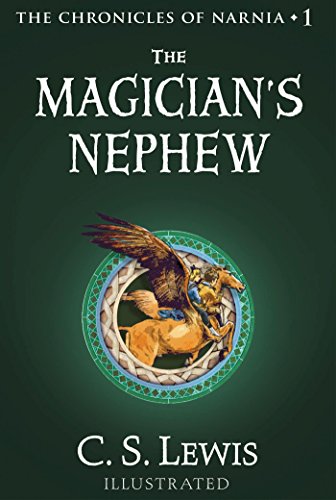Just the other day we announced that Dirk Wyle’s Medical Mystery AMAZON GOLD is our Thriller of the Week and the sponsor of thousands of great bargains in the thriller, mystery, and suspense categories: over 200 free titles, over 600 quality 99-centers, and thousands more that you can read for free through the Kindle Lending Library if you have Amazon Prime!
Now we’re back to offer our weekly free Thriller excerpt, and we’re happy to share the news that this terrific read is FREE for Kindle Nation readers during its TOTW reign!
Ben signed up to be a highly paid pharmaceutical consultant, not an industrial spy in Miami.
Rebecca signed up to be a world health physician, not a hostage in the Brazilian Amazon.
But strange things can happen when you discover a new kind of gold.
Series author Dirk Wyle has created a new kind of mystery-thriller — powered by medical science, business and anthropology, and driven by the professional challenges of a two-career couple. In a stunning climax, Ben and Rebecca are reunited to discover astonishing truths — and to fight for their lives.
“Wyle has given the hard-boiled thriller a scientific twist, making his novels pleasing for both their intrigue and their intellect.”
— Booklist Mystery Showcase (American Library Association)
And here, for your reading pleasure, is our free excerpt:
About Amazon Gold—
Ben signed up to be a highly paid pharmaceutical consultant, not an industrial spy in Miami.
Rebecca signed up to be a world health physician, not a hostage in the Brazilian Amazon.
But strange things can happen when you discover a new kind of gold.
Series author Dirk Wyle has created a new kind of mystery- thriller—powered by medical science, business and anthropology, and driven by the professional challenges of a two- career couple. In a stunning climax, Ben and Rebecca are reunited to discover astonishing truths — and to fight for their lives.
Contents
Dedication
Chapter 1 — Santa Isabel Blues
Chapter 2 — The Pilot’s Tale
Chapter 3 — Down the Lazy River, Up the Fast Jet Stream
Chapter 4 — This Old House
Chapter 5 — Michael Malencik
Chapter 6 — An Evening with Dr. Westley Chapter 7 — Locks, Keys and the DEA Chapter 8 — An Afternoon with Edith Pratt Chapter 9 — Shoot
Chapter 10 — Brazilian Bicyclist
Chapter 11 — Mr. Hyde Is the Mother of Invention
Chapter 12 — Sticky Consult, Sticky Jungle Chapter 13 — Applied Anthropology Chapter 14 — Dream Machine
Chapter 15 — Unwelcome Attention
Chapter 16 — Miami River Scramble
Chapter 17 — Northwest by North River Drive
Chapter 18 — Miami and Manaus Chapter 19 — Up the Lazy River Chapter 20 — Santa Isabel
Chapter 21 — Up the Rio Marauiá
Chapter 22 — At the Mission
Chapter 23 — Walk In the Forest with You
Chapter 24 — Hekura Analysis Chapter 25 — Yanomama Maiden Chapter 26 — Hearth and Home Chapter 27 — Open-House Chapter 28 — Paying the Piper
Chapter 29 — Field Medicine and Disinformation
Chapter 30 — Press Conference
Epilogue Acknowledgments About the Author
1 Santa Isabel Blues
It was in Santa Isabel, not Rio de Janeiro, that Rebecca and I spent our last evening together in Brazil. Deep in the Amazon basin, we had no sandy beach with inviting water, no promenade to stroll at sunset and no cool breeze rolling down from green hills. Instead, we trudged down a muddy red bank and waded into the Rio Negro. Yes, the humus-saturated water served to wash from our naked bodies the accumulated grime from our four days of westward travel on a river freighter out of Manaus. But the water’s reddish-brown cast was foreboding. After we had waded to knee depth, our feet were barely visible. And at waist depth, they were lost in a realm of impenetrable black. Smelling the river water in my cupped hand, I was reminded of stale tea.
Thus we didn’t splash, we didn’t swim, and we didn’t linger. We washed ourselves quickly, then struggled up the muddy bank to retrieve our damp clothes from the bushes. The sun was low, only a few diameters above that narrow band of tropical green along the distant bend of the broad black Rio Negro. When the sun sets along the equator, darkness comes quickly. Hastily, we blotted the tea residue from our skin and dressed. Quickly, we made our way between the stilt shacks and found the rain forest path leading to our lodging.
There was no room service dinner, no moonlight-drenched balcony, no diaphanous curtains waving in a breeze, and no oversized bed with white sheets. There was no breeze, just tropical swelter. We ate from cans by lantern light, then retreated of our tent where we shed some of our clothes and sat, facing each other, on the two stretched-canvas cots. Expedition leader David Thompson was snoring in a nearby tent and I was slipping into a foul mood.
But the tropical moon did its best to stir romance. It shown down on us through the mosquito screen, glistening Rebecca’s black hair and drenching her narrow, delicate face in a stream of cool light.
Sitting there, stripped down to my underpants, feeling hot, grubby and worried, I lost myself in thought.
Well, Ben Candidi, this is the price you pay for melding souls with an idealistic physician with a passion for Third World medicine. Rebecca’s jetliner didn’t take you to Rio de Janeiro; it took you to Manaus, 800 miles up the Amazon. You boarded that rickety freighter willingly. Nobody said you had to ride up the Rio Negro with her for those 400 winding miles. And you knew that your destination was an umbrella tent behind a Brazilian Indian bureau station across the river from a shantytown called Santa Isabel.
No, of course, a rough-and-ready guy like you wouldn’t be complaining about the heat and humidity. Could it be that you’re irritated about having to say goodbye to her for a month? Hell, Ben, you knew weeks ago that there wouldn’t be enough room in that dugout canoe for you and their medical supplies. But now you’re worried that it’s unsafe for her to go 100 miles north, up the narrow Rio Marauiá into Yanomama Indian territory and work for a month in the health shed at that Catholic mission? Do you think she needs you standing guard over her?
Face it, Ben, you’re projecting your own problems on her. Admit it, Ben: If you don’t get back to Miami and pick up work on that report, your biomedical consulting career will be over before it gets started.
Rebecca must have been reading my thoughts at that moment. “Don’t worry, Ben. I’ll be all right.” Her voice was so beautiful — resonant, high-pitched but self-assured.
“Okay” I replied. “Just be careful on the trip. I keep worrying about you running into bad guys — like rubber tappers, gold prospectors and smugglers.”
“Access to the river is controlled. David has made the trip five times already. Nothing happened.”
“I still wonder about those Indians outside the Mission.” “Ben, you’re going by descriptions that Napoleon Chagnon wrote decades ago. The newer anthropological studies say the Yanomama aren’t so fierce anymore. Don’t worry, David will take care of me.”
Right!” I said it with a touch of irony. That guy would take care of her, alright. He’d start laying his paws on her the first night out.
Rebecca laughed. “You’re not worried that I won’t be able to keep him in his place, are you?”
“No, I promise not to worry about that. But there are a few things I want to run down with you.”
“Yes,” she sighed.
“First off, when you’re traveling in the Third World it’s a mistake to be too nice to people — especially ones you don’t know. Let them get too familiar and they start taking advantage.”
“Okay.”
“That applies doubly to indigenous people.”
“Yes, Ben. If they get too close to our bags, I’ll bark at them,”
she said sassily, “just like you did in Manaus.”
“Right. And when you’re alone, don’t let anybody get too close to you. If they grab you, hit them where it hurts.”
In my thirty-some years, I’ve had more than my share of tough situations. Growing up around Newark will toughen anyone up, especially if he’s in the habit of carrying his schoolbooks home at night. I left those troubles behind when I went off to Swarthmore College but they caught up with me in Miami, ten years later. That was when I’d enrolled in a pharmacology Ph.D. program and agreed to do an undercover project on the side. A Ph.D. won’t keep people from trying to murder you when you go around uncovering their scams. Muscle memory of Newark has saved my life three times already.
Rebecca sighed like a teenager resisting an elder’s advice. “Yes, if they grab me I’ll scratch their eyes out.”
“And don’t depend on Thompson to protect you. Sure, his skin’s made of leather, but he doesn’t have enough muscle to put up a good fight. And listen — never give in to a threat. Never let them increase their advantage over you.”
Rebecca sighed again. “If someone holds a knife to David’s throat and says he’ll slit David’s throat if I don’t throw down my pack, I don’t do it. I pull out my own knife.”
“Right.”
“Yes, ‘right’ — for the fifth time. You know, Ben, I have learned a few things from you in the years we’ve been together. Just trust me. Promise?”
“I promise.”
Yes, Rebecca had learned a few things from me. And I’d learned a lot from her. Although she’s five years my junior, she’s
the mature one when it comes to professional goals. At 14 she was already planning to be a doctor. And she’d never wasted a year. I had wasted six of them. After Swarthmore I had worked half-heartedly in the medical examiner’s laboratory by day, had bummed around Miami’s Little Havana by night, and had boat-bummed around Coconut Grove every weekend. Hell, if I hadn’t met her, I might never have finished my Ph.D. Left to my own devices, I’d probably go back to dilettante life.
Rebecca was still looking at me, waiting for an answer.
“Yes, girl, I promise not to worry. Now let’s talk about one more thing — communication.”
“I’ll e-mail you as soon as we get to the Mission and David unpacks the satellite dish. My e-mail will get to Miami faster than you will.”
“And I’ll e-mail you every day.”
Rebecca smiled. I’d probably sounded like a fatuous hero in one of those Merchant-Ivory period films. Her smile was so charming in the moonlight.
“But don’t be upset if you don’t hear from me every day. Some days it might be raining too hard for David to put up the dish. Or something might happen to the equipment.”
“If David can’t put up the dish when you arrive, then you have the Mission get on their shortwave radio and report back to the Indian bureau station here.”
“It’s called a Funai office,” Rebecca said with an ironic smile. “It stands for . . . . Now you’re the one who’s supposed to be the expert on Portuguese.”
Rebecca smiled as I fumbled and failed to translate the acronym into Portuguese. For the last four days I’d been having mixed success with my efforts to convert my fluent Spanish into acceptable Portuguese.
I suggested more backup plans for communication. “Ben, you’re looking worried again. Stop it!”
I willed myself to relax. Rebecca sighed. I looked at her, sitting across from me in panties and unbuttoned khaki blouse. She wasn’t sweating. That thin, angular body would serve her well as she glided through the jungle, buoyed by the optimistic belief that her health care work would make a difference. Yes, we’d let David Thompson — over there in the next tent, snoring like the 60-year-old that he was — we’d let him sweat the details. Let the old snorer pay for spoiling my last evening with my fiancée in Brazil. I fell silent, listening for forest sounds between the rasps of Thompson’s saw blade.
In the distance I could make out the rhythm of a fast samba. It was probably from a battery-operated boom box. It was probably the night’s entertainment for a caboclo couple in a nearby shack. There’s no single translation for caboclo. Fishermen? Pioneers? Subsistence farmers? I’ve even heard “backwoodsmen.” If you’re into racial definitions, call them mestizos. The husband probably fished the river. His wife probably grew açaí, manioc and peach palms in a small garden. After four days and a dozen stops on this river, we’d seen so many caboclo couples that I had no trouble imagining this pair. He would have mixed Indian features and would be gritty and unshaven, probably wearing a hat, an undershirt and long pants — his Friday evening finest. He might even be wearing leather shoes. She would be in flip-flops or barefoot, but wearing a long dress. I imagined them dancing, moving their feet and shaking their hips to the beat of cowbells, whistles, bead shakers, seed gourds and rubbed drum-skins. About as sexy as a sponge bath with stale tea.
Rebecca slid over to my cot and kissed me on the cheek. I opened my eyes and looked up. She was on hands and knees, in a cat pose. She caught my glimpse of her open blouse and smiled. She stretched forward and kissed me on the mouth — deeply and hungrily. But I still felt gritty and annoyed.
Rebecca pushed me down on the cot and kissed me again. “Don’t let him irritate you anymore,” she whispered. “He’s deep asleep. We have the whole world to ourselves, just like on the Diogenes.” She got up and made a minor adjustment to the tent’s entrance flap. She wiggled out of her panties, tugged at my underpants, cast off her blouse and took charge.
Balancing on knees and toes on the wooden rails of my cot, Rebecca showed me how much a 25-degree shift in latitude could change a woman. It seemed like the tropical rain forest had unleashed a new species of passion. This was not the delicate, languid, open-air love that we had made while anchored in the Florida Keys. This was fast samba love. Something had converted her 120 pounds into an untiring, vertically resonant love machine. She shook me to the roots. It seemed like the spirit of the torpid jungle permeated her brain stem. Or maybe it was the spirit of the mythological Amazons.
Seemingly immune to heat exhaustion, she performed a dance of gyrating hips, pumping abdomen and fluttering arms. Tropical moonlight poured in through the opened roof flap, illuminating her small, charming breasts as they jiggled in Brazilian carnival rhythm. How much longer could she continue like this? She sensed my question and answered it wordlessly. As we reached our precious seconds of shared ecstasy, the chirps and squawks of rain forest birds and reptiles grew louder. Perhaps they were augmented by sounds from our own throats.
Expended, my body dissolved into the stretched canvas. Exhausted, Rebecca took three deep breaths before reaching for the cot’s rails and collapsing onto me. She buried her face in my neck. A bony shoulder rested on my matted chest hair. Sensing that her legs were cramping, I raised my hips to unburden them. Our legs intertwined and she molded her broad hips to mine. Her skin felt cool on the surface and her flesh felt so hot at our pressure points. Spent and clinging to each other like vines, we shared heartbeats, breaths and whispered endearments. We shared these for a long time, filling each other’s reservoirs with what only the soul can offer, preparing for a four-week drought.
Rebecca’s reservoirs filled more rapidly than mine. But she didn’t let go of my hand when she rolled into the other cot. “Don’t worry, Ben, everything will be okay.”
We slept.
The next morning, I woke to find Rebecca smiling down on me. She was already dressed for the expedition: light khaki, multi- pocketed shirt and shorts with Oregon rafting sandals. I dressed quickly. Rebecca’s near shoulder-length hair was drawn up into a ponytail which she’d pulled through the back of her blue ball-cap. It stuck up at a sassy angle and bounced with her steps as I followed, carrying her two bags down to the dock.
David Thompson was standing next to a couple of canvas bags and was frowning down on a soggy 16-foot dugout canoe that was nosed up at the bank and was floating between two poles. Thompson was arguing in broken Portuguese with Hashamo, the native guide, about where to place the satellite dish. With a three-foot diameter, it was wider than the canoe. Why the hell hadn’t Thompson retired
that geostationary contraption and bought a hand-held satellite phone that works off the lower orbiting system? Do you have to be old-fashioned to be an academic?
With white hair, a long nose, gaunt cheeks and wearing a rumpled safari suit, Thompson did have the disheveled look of a university professor on a field expedition. He also had a desk worker’s slouch. But grudgingly, I had to admit that whatever this tall, large-boned specimen lacked in athleticism, he could probably make up with willingness to persist in the face of obstacles. All he needed was a little more common sense.
Hashamo ended the discussion by setting the satellite dish on end towards the rear of the boat and by jamming in a box of canned food to secure it. He turned his attention to Thompson’s bags, hauling them from the bank and packing them a couple of feet away from the slosh that had accumulated in the center of the boat. Hashamo had lively, intelligent eyes. He looked about 19 years old, but it is difficult to judge the age of an Amazon Indian. His five-foot, six-inch frame was lean and his reddish skin was stretched tautly over his well-developed muscles. His stomach was flat. And his only clothing was a pair of red boxer shorts.
Now, Hashamo was looking up at me, trying to tell me something. Over the last several days, I had learned to overlook the major differences in Amazon Indian and European physiognomy— the prominent cheekbones, that certain prominence of the mouth and forward set of the upper jaw, and the broad nose with large nostrils. I had also gotten used to their hair and hairstyle: their straight dark-black hair that was always cut in soup bowl fashion, creating a bang over the forehead and an abrupt overhang in back. Hashamo gestured that he wanted Rebecca’s bags placed in the front of the boat. I did his bidding.
Hashamo moved forward to help Thompson aboard. After the old professor was comfortably seated, it was time for Rebecca to take her place in the bow. Quickly, I hugged and kissed her before helping her in.
Hashamo was now turning his attention to the outboard motor. It was probably a Johnson, although it was hard to tell with the housing so bashed, scraped and painted over. Probably 15 horsepower and as many years old. It’s hard to judge the age of an Amazonian outboard.
“Take good care of her,” I yelled down to Thompson.
He answered with an impatient frown. “Be careful on the river,” I added. Thompson shook his head like I was talking trash. He had assured me yesterday that Hashamo had been making this trip for years, supplying the Mission and delivering goods on a regular schedule.
Then Rebecca surprised me.
“Ben. One thing I forgot. In two weeks, there’s going to be a tropical anthropology conference in Miami. I’m preregistered for it — too late to get a refund. Could you attend it for me?”
“Sure.”
“The announcement is on my desk at home.” “Anything special you want me to do?”
“Dr. Edith Pratt is going to speak. Could you take notes on her presentation?”
“Sure. I’ll take good notes and e-mail them to you. What does she do?”
“She’s a tropical anthropologist, specialized in Amazon Indians.”
“Which tribe?”
Thompson was fidgeting. Hashamo pulled the starter cord and
the engine came alive.
“I don’t know,” Rebecca called back over the roar.
Hashamo was goosing the accelerator, trying to keep the motor alive and was making a lot of white smoke in the process.
“Do you know her, David?” I asked.
“No,” he said with a grimace. Obviously the fields of tropical medicine and tropical anthropology had nothing to do with each other.
“Just thought maybe I could say hi to her for you, David.” Thompson answered with a signal that I was to cast them off.
Hashamo threw the motor in gear. The propeller beat a lot of air into the reddish water and stirred up a lot of silt in the process. Rebecca blew me a kiss as the boat pulled away from the dock. And for the next half hour, I watched as the boat traversed that vast expanse of black looking water — the Rio Negro. The river was very broad — several miles at least — and the far bank was just a strip of green. But I didn’t stop looking at the boat until it disappeared between the black and green horizons where I imagined a gap that would be the Rio Marauiá.
Then I remembered something I had forgotten to tell Rebecca: “Don’t forget to take your mefloquine once a week.” I didn’t want her to catch malaria.
I didn’t want her to leave me, either. But she had left me there to sing the Santa Isabel Blues.
2 The Pilot’s Tale
It was a real nutty blues lyric that I cooked up while standing there, needlessly, in the morning sun:
Oh, riverboat come get me, come take me away!
Take me down to Manaus, you can get there in four days.
Blow your horn and I’ll come running with my backpack shouldered high,
An’ four days later Saint Varig’s chariot will lift me in the sky.
To a blue heaven where the air is cool enough to think, Where you can get a glass of water that’s pure enough to drink.
Ol’ riverboat, come get me, or my consulting job I’ll lose, Ol’ riverboat please don’t leave me here to sing the Santa Isabel Blues.
If I didn’t get back to Miami quickly, my consulting project would go down the tubes. I thought long and hard about that three- foot stack of papers sitting on my desk in Miami.
But my thoughts were not productive. Standing in the morning sun like a lazy river boy, I began to wonder if I was more like Tom Sawyer or Huckleberry Finn. Physically, I’d make a better match with Huck Finn. You might describe my features, inherited from my second-generation Italian parents, as Mediterranean. I have lots of black hair on my head, and on my chest, too. At five-foot- eight, I’m a little on the short side. But a lot of girls have said that I have a winning smile, so maybe that’s more like Tom Sawyer. I did admire the way Tom handled that fence painting assignment. And, come to think of it, our love interests have the same name: Becky is just short for Rebecca. It was Aunt Polly who’d cracked the whip over Tom, and it was Chief Medical Examiner Geoffrey A. Westley who’d administered the kick in the butt that got me into the Ph.D. program.
Of course, my river was bigger than Tom’s. The Amazon is a heck of a lot longer than the Mississippi and it puts out 12 times as much water. Even the Rio Negro, its northern tributary on which I was standing, puts out more water than the Mississippi.
And the sun over the Rio Negro was a lot hotter. Maybe that’s why so many of the Brazilian caboclos sat around chewing hallucinogenic ebene seeds like Huck Finn’s Arkansas rednecks with their “chaws.” How hopeless, when your only source of food is the fish you can pull from the river and the vegetables you can grow in your garden. How lucky I was to be born in the U.S. and to have a white collar job, even if it did require a lot of hard work and scheming.
Standing under the brain-deadening sun, I began to understand the mindless exploitation of the Amazon basin. It’s not easy to find a high-value product. It’s easier to tear down forests to make paper pulp and charcoal. It’s easier to rent your body to the owners of the gold and diamond mines. And if you turn stream beds into stagnant ponds and mountainsides into ugly pits, so what? Natural beauty is nice, but it doesn’t put much food on the table.
I waded into the water and soaked my head. I unbuttoned my khaki shirt and splashed my chest. That was much better, but the water was full of decay products from the rain forest floor: tannin and carboxylic acids. Jacques Cousteau reported that the pH gets as low as 3.2. Actually, the average value is about 5.2, which is low enough to kill mosquitoes. I wondered how fish could live in it.
Attempting to fight off stupor with purposeful physical action, I walked along the river’s banks in the downstream direction, working my way around stilt-mounted caboclo shacks, beached boats and fishing nets. One-half of a mile downstream, I found something
interesting: a seaplane tied to a floating dock that extended a dozen
yards into the river.
I recognized it as a Lake Amphibian. It wasn’t just a regular aircraft mounted on pontoons. This was a truly amphibious aircraft that sits in the water. Its underside had the hydrodynamic design of a high-speed boat. I walked up the dock and peered through the plane’s large, rounded windshield. The cockpit was enormous. The pilot and copilot would have plenty of shoulder room. The high- winged plane would also afford good visibility through the large, rounded side windows. The aft portion of the fuselage tapered and rose. From just below the tail assembly protruded a tightly stowed grappling anchor. It looked like someone had stuck a multi-barbed fishhook up the plane’s rear end. Oh, what innovations these bush pilots think up!
The engine was mounted on a pylon, high above the passenger compartment and protected against splashing water. Retractable wheels were tucked in above waterline on either side. Nice plane if you live on the water. I heard that Jimmy Buffet has one of them down in the Florida Keys.
Painted on the side of the aircraft was “Amazon Touristic.” Funny suffix they used to end the word “tour.” Certainly not Portuguese or English. What kind of tours did this plane take, anyway? Being 400 miles northwest of Manaus, our location was too remote for an “eco-lodge” catering to ecology-minded North American and European tourists. And the sport fishing boats didn’t prefer the Rio Negro either. The river was dead compared to the main branch of the Amazon. And it seemed pretty expensive to use an airplane for a fishing boat.
Maybe Amazon Touristic was providing “tours” for illegal substances. What would they be? The plane wouldn’t have enough range to fly cocaine to the Florida Keys. It would have to refuel at the Venezuelan coast. And this area wasn’t good for growing coca, anyway — too wet and hot. The Andean growing regions were over
600 miles to the west and northwest. Maybe the plane was shuttling untaxed diamonds from the south. Or maybe it was supporting an illegal gold mining operation in the Yanomama Indian territory directly north of us.
Several dozen yards up the bank was a stack of fuel drums. Farther inland was a sprawling shack with a tin roof. Of course, it would have been ridiculous and possibly dangerous to knock on the door and try to talk with someone about the plane.
I went back to my tent and ate a quick lunch of combat rations. Afterwards, I knocked on the door of the Funai station. The husband and wife team who were running it invited me in for a cup of coffee. Marcello and Lucia Campos de Carvaloh weren’t much older than me. Marcello had the dark curly hair and olive complexion that you might expect to see in Lisbon. Lucia had a long, handsome face with nicely formed eyebrows and a robust head of black hair that made charming curls around the collar of her white blouse. Trade their shorts and sandals for a J.C. Penney ensemble and neither would have looked out of place in the downtown of Providence, Rhode Island.
They spoke little English, so we made do with Portuguese — their Portuguese and my Spanish which I tried to bend in the direction of Portuguese. The conversation was hard work, requiring ingenuity of everyone’s part. Most of the time, Marcello stood back with crossed arms, letting Lucia do most of the talking and supplying only an occasional nod. Lucia worked hard to answer my questions, emphasizing certain words with a blink of the eye and elaborating on others with a diverse repertoire of gestures of her shapely forearms.
She said that I was welcome to stay another night in the tent and not to worry — a southbound freighter was sure to come by the next day. She explained that this was their first government assignment. They were responsible for indigenous affairs for part of the Pico da Neblina National Park in the southwestern portion of Yanomama territory directly north of us, on the Rio Marauiá. The whole territory is about the size and shape of Pennsylvania, with the southern part belonging to Brazil and the northern part to Venezuela. She explained that a low mountain range makes the division. Access from the Brazilian side is via a half-dozen rivers that flow into the Rio Negro.
Lucia said that I shouldn’t worry about Rebecca’s safety because Senhor Doutor Thompson has made this trip every year for five years with no trouble. Theirs was not the busiest or most troubled of the Funai posts responsible for the Yanomama Indians. Of course, the eastern section by Boa Vista had a lot of trouble with the garimpeiros — the gold miners — when they invaded the
region, 15 years ago. But the garimpeiros were thrown out and the damage is healed.
I thanked my hosts for the explanation and asked how they could help Rebecca if she got into trouble.
Lucia said that they control access up the Rio Marauiá and that no one is allowed up the river without a permit. They had shortwave radio contact with the Mission and had a satellite phone to speak to Manaus in a rare emergency. Sometimes they had to ship a young man down the river for treatment when he breaks his arm in a fight. But the Indians who are in contact are more peaceful, now. Machetes are allowed up the river now, because they are used to construct shabonos — the tribes’ communal huts. But handguns, rifles and shotguns are not allowed.
Lucia said one of their jobs was to coordinate public health programs. Once a year, an Army doctor goes upriver to give vaccinations. “It is nice that Senhora Doutora Levis is helping at the Mission and giving them better health care,” she said with a sympathetic smile. “No, there is no chance that she will come into danger.”
The conversation took nearly two hours. I thanked Lucia and Marcello for their hospitality and retired to my tent where I ate a dinner that was a lot like lunch — freeze-dried military rations.
When nightfall came, it came very quickly. Although intending to go to sleep early, I was distracted by music wafting in from the distance. I wondered if it was coming from the waterfront bar that Rebecca and I had seen by the landing where our freighter had put in. Encouraged by the thought that I’d done something that day to earn a cold beer, and that alcohol would help me to get to sleep, I grabbed a flashlight and followed the jeep trail to the Rio Negro.
The bar was a couple of hundred yards up the river. It was built on poles for protection against flooding. I walked up a wooden stairway along the woven reed wall, ascending to a planked platform that held a bar and two rough-hewn picnic tables, lighted by several bare bulbs hanging from the thatch ceiling. The music was coming from an oversized boom box, also hanging from the ceiling. I guessed the power was coming from the portable generator I’d heard while approaching the stairs. The edge of the platform was secured with a rope strung between the outside poles that held up the roof. The bar was little more than a high, eight-foot-long table with a woven reed skirt. Behind it was a barmaid, wearing a string bikini bottom and a shapeless, tight-fitting halter top that flattened her small breasts. Yes, this was probably the halfway station to a cathouse further up the river.
One of the tables was occupied by three caboclos who were engaged in serious conversation. The other table was empty, but it sat directly under the boom box which was turned up full blast. So I grabbed a wicker stool at the end of the bar. At the other end sat a blond, gringo-looking guy who must have been six-foot-three. He had heavy bones, solid muscles, brooding posture and a broad, solid face that was deeply furrowed. He was probably in his upper thirties but could easily pass for mid-forty. His left cheek bore a long scar and his forehead bore a short one. Were these the result of an on-the-job accident or a knife fight? Coarse, wavy blond hair hung well over his ears but not to the shoulder. I gave him a respectful nod before sitting down.
“Una cervesa,” I said to the barmaid. She understood that a beer was ordered and ducked under the bar and rummaged in a tiny refrigerator, the type that runs off of 12 volt power in recreational vehicles.
Although I hadn’t spoken those two words half as loud as the boom box, the guy at the end of the bar got into the act immediately. He started telling me, in heavily German-accented English, that I wasn’t pronouncing the word for beer right in Portuguese.
“Uma cerveja,” he corrected. He said it again and again, drawing out the m in uma and the j in cerveja like I was a dumb kid who was hard of hearing. He gave me no choice but to repeat it after him.
He finally let me off the hook. “So ist’s richtig, mein Ami Brüderlein.” His deep, forceful bass voice sounded strangely familiar. It was those records that a Swarthmore prof had played for us back in German 101 — of a guy singing in German about sailing the high seas and visiting ports all over the world. “Freddy” or “Heino” was the singer’s name.
And this drunken Nordic Goth had just called me “little brother.”
Continued….
Click on the title below to download the entire book and keep reading
















 Loading
Loading













